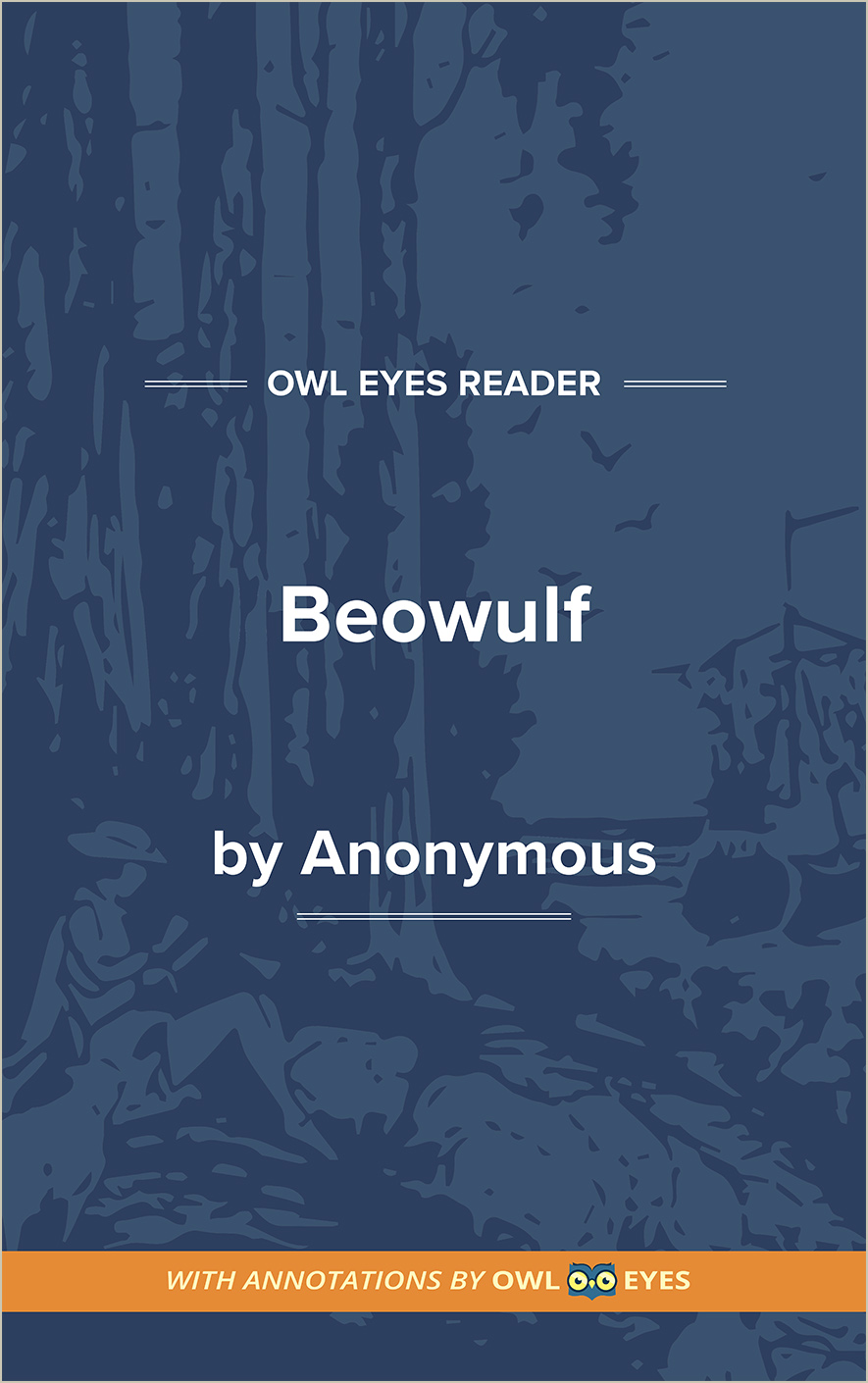Analysis Pages
Themes in Beowulf
Honor: Honor and reputation were considered important personal traits to the Germanic and Scandinavian cultures featured in Beowulf. For Beowulf, there is nothing more important than the creation of a legacy. He travels from Geatland to Denmark to kill Grendel out of a desire for personal glory and to defend the allied Danes. Honor is important to the Danes as well. Before even setting out to kill Grendel, Beowulf must prove himself to the Danes, repairing his marred reputation from to a swimming race he lost in his youth. Finally, the elderly Beowulf refuses to flee from the dragon at the poem’s end, even as his best soldiers desert him.
Revenge: Revenge drives the heroes and villains in Beowulf. Grendel attacks Heorot Hall because he wants to seek vengeance against mankind for his lineage. Grendel’s mother attacks Beowulf because he killed her son. The narrator suggests that there are multiple feuds and battles going on between the different Germanic tribes. This suggests that revenge was a way of life in this time. Beowulf himself conducts his final battle to seek vengeance against the dragon who burned down his home.
Kinship: Kinship, being related by blood, ancestry, or affinity, and loyalty are main driving factors that structure Beowulf’s actions. He owes the old king Hrothgar a debt of gratitude because Hrothgar assisted Beowulf’s father in the past. Loyalty was seen as a way to maintain one’s honor and therefore was extremely important.
Tension between paganism and Christianity: England underwent a radical Christianization process in about 597 with the mission of St. Augustine. However, paganism continued to influence patterns of thought and culture. Beowulf is presumed to have been composed between 700 and 1000 CE, but the only surviving copy of the poem was transcribed by Christian monks in the 11th century. It is unknown whether or not these scribes added Christian narratives to the tale during this transcription or if the Christian undertones were already part of the narrative. Inconsistencies throughout the poem suggest that elements were added to the narrative by someone other than the original author. Many have speculated that the poem was written down from a pagan oral tradition which could account for many of the disagreements within the text. Regardless of who added the Christian themes to the poem, Beowulf is an example of the conversion from paganism to Christianity.
Themes Examples in Beowulf:
I
🔒"Men are not able Soothly to tell us..." See in text (I)
"At the hour that was fated..." See in text (I)
"God-Father..." See in text (I)
II
🔒"The kindred of Cain..." See in text (II)
"Father Almighty..." See in text (II)
"Four bairns of his body born in succession..." See in text (II)
III
🔒"love of Him knew not..." See in text (III)
"Hope of the heathen..." See in text (III)
IV
🔒"the Wielder they thanked..." See in text (IV)
VII
🔒"And as bid of the brave one the battle-gear guarded..." See in text (VII)
VIII
🔒"God can easily hinder the scather From deeds so direful...." See in text (VIII)
"Weird hath offcast them to the clutches of Grendel...." See in text (VIII)
"For fear of a feud were forced to disown him...." See in text (VIII)
X
🔒"I tell thee in earnest..." See in text (X)
"Weird often saveth..." See in text (X)
"God's beautiful beacon..." See in text (X)
XI
🔒"That God Almighty hath governed for ages..." See in text (XI)
"The glory apportion, God ever-holy,..." See in text (XI)
"'Mid earthmen 'twas 'stablished,..." See in text (XI)
XV
🔒"What woman soever in all of the nations Gave birth to the child..." See in text (XV)
XVI
🔒"When feasting is finished...." See in text (XVI)
XVII
🔒"Prepared for the pile..." See in text (XVII)
XVIII
🔒"When Hun of the Frisians the battle-sword Láfing,..." See in text (XVIII)
XIX
🔒"Weird they knew not, destiny cruel,..." See in text (XIX)
XX
🔒"Whether God all gracious would grant him a respite After the woe he had suffered..." See in text (XX)
XXI
🔒"seek if thou darest!..." See in text (XXI)
XXII
🔒""Grieve not, O wise one! for each it is better, His friend to avenge than with vehemence wail him;..." See in text (XXII)
XXIII
🔒"And had God most holy not awarded the victory,..." See in text (XXIII)
"the hall-guest..." See in text (XXIII)
"So any must act whenever he thinketh To gain him in battle glory unending, And is reckless of living...." See in text (XXIII)
XXIV
🔒"the eddies were cleansèd..." See in text (XXIV)
"His life put aside and this short-lived existence...." See in text (XXIV)
"That it melted entirely..." See in text (XXIV)
XXV
🔒"Learn then from this, Lay hold of virtue!..." See in text (XXV)
"he gave then no ring-gems..." See in text (XXV)
"The flood slew thereafter the race of the giants..." See in text (XXV)
"Had God not defended me...." See in text (XXV)
XXVI
🔒"Beware of arrogance, world-famous champion!..." See in text (XXVI)
"His end-day anear,..." See in text (XXVI)
XXXI
🔒"So a kinsman should bear him..." See in text (XXXI)
XXXII
🔒"briefly he spake then: "Hold thou, O Earth, now heroes no more may,..." See in text (XXXII)
XXXVI
🔒"the hand was too mighty 80 Which every weapon, as I heard on inquiry,..." See in text (XXXVI)
""I remember the time when, tasting the mead-cup,..." See in text (XXXVI)
XXXVIII
🔒"The battle-famed bid ye to build them a grave-hill..." See in text (XXXVIII)
XLIII
🔒"They placed in the barrow rings and jewels, All such ornaments as erst in the treasure War-mooded men had won in possession:..." See in text (XLIII)

